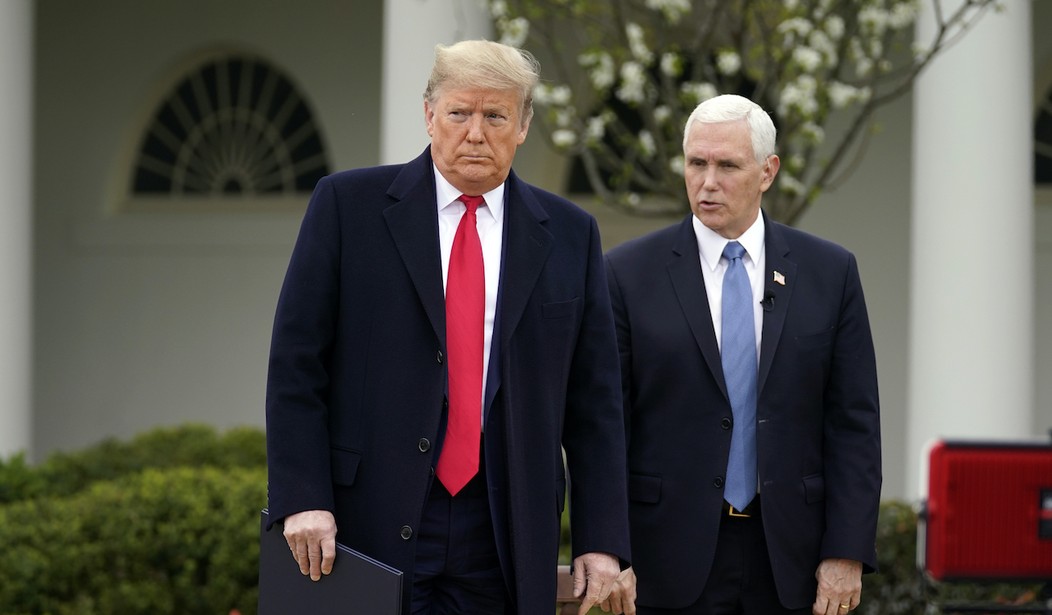Innovation spurred by competition is one of the most important tenets of the free market. As a result we should always view the prospect of large mergers with a certain degree of skepticism to ensure they do not create a cartel in violation of our antitrust principles and laws.
However, in today’s defense world there is a strong argument to be made to the contrary. When done right, mergers between major U.S. defense companies can in fact act as a stimulus to competition and can also improve our national defense capabilities in strides. Furthermore, such activities should be considered as an additional option to bolster critical national industries in the wake of the COVID-19 crisis.
In principle, all major industry and business mergers must be reviewed to ensure they meet the standards of the Sherman Antitrust Act, which curbs concentrations of power that interfere with trade and reduce economic competition. With respect to the defense business, we are particularly reminded by President (General) Eisenhower’s warnings against the “military-industrial complex.”
This may lead some to conclude that we should attempt to put the brakes on the current defense mega-merger under consideration betweenRaytheon and United Technologies, but the facts seem to lead to a different conclusion.
Senior Pentagon officials have given the merger a tentative stamp of approval.The European Commission also just approved the merger, particularly interesting given the fact the European Union Defense industry is one of our strongest market competitors.
Recommended
This may come as a surprise to many, but only 5 of the 10 largest defense contractors are American. There is strong competition both from our allies in the UK and European Union as well as our adversaries to invent and supply new weapons systems.
Our adversaries in China and Russia are making immense investments in their defense industries. They are striving to match and surpass our capabilities (often through spying and stealing our secrets) and are threatening to reach a critical point of confidence where they feel they can match the United States in combat.
Defense mergers could go a long way toward bolstering America’s strategic technology advantage. The Raytheon-United Technologies merger, for example, would create a new company with an $8 billion research and development budget and 60,000 engineers dedicated to developing next-generation defense technologies. Given the rise of geopolitical risks around the world, this could not come at a better time.
Meanwhile, as Congress and the White House deal with the exponential economic damage caused by the coronavirus pandemic, policymakers on both sides of the aisle are looking for ways to ensure the survival of critical national industries. Subsidies and loan guarantees are the most commonly discussed options at the moment, but decision makers should also view key strategic mergers as a taxpayer friendly way to keep vital parts of America’s economic engine running.
The economies of scale and elimination of redundancies created by Raytheon-United Technologies merger for example, would allow the new entity to realize hundreds of millions of dollars of costs savings in the first year alone. As companies look to cut costs, this is a preferred way to help them hold onto some much-needed cash without laying off employees or cutting integral capabilities.
The coronavirus crisis has also brought to light a critical predicament that many have ignored and now we must face with urgency - our supply chain. It now appears that in the quest for cheap production we are dependent on China for many of our essential materials, from car parts to medication. In the wake of recent threats from the Communist Country to stop exporting critical medications in the wake of this public health crisis, we must also assess how much of our defense industry components come from China and do all we can to redirect our supply chain to the new United States Mexico Canada Agreement (USMCA) trade area.
As the Chinese strategist Zen-Zu reminds us “the most powerful Army is that one no one wants to engage.” This is where we are today, and we must remain as such in order to ensure peace. Thus, be it in the commercial, technology or the real war fronts, American defense systems must be peerless.
It is important therefore that our policymakers support our defense industries just as we do our armed forces. This combination has been the source of our strength and can-do in facing all odds since our war of independence. For all the large and some seemingly innocuous reasons, we must support defense industry mergers that are focused on having an industry that is competitive, reliable and fully established in North America. Our survival depends on this.
Col. Eric Rojo (U.S. Army, Retired) is the Vice President of the US-Mexico Chamber of Commerce and the former Security Programs Coordinator for the Center for Dialogue and Analysis on North America.

























Join the conversation as a VIP Member